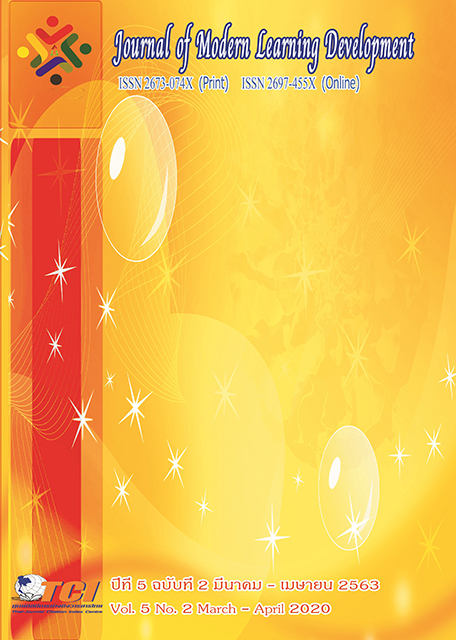An Analysis of Buddhist Instructional Methodsin Kasibhāradavājasutta
Main Article Content
Abstract
The dissemination of Dhamma to the people is a unified practice because teaching is both science, art, and a subject that is the true knowledge of teaching. The effective method of propagating the teachings causes faith to those who are not faithful and creates faith even more to those who are already faithful. From the era of the Buddha to the present day, it can be seen that preaching is the most effective method of propagating doctrine. Therefore, in teaching methods, it is necessary to lay out guidelines for unity.
The dhamma talks in the general form of a Buddha are a sutta which represents his wisdom, who considers the Dhamma topics displayed as suitable for the audience. The metaphorical instruction by giving an example with comparison lets the listeners understand what the good and bad will happen. The comparative characteristics make listeners understand more easily. In comparison, there may be opposite or similar characteristics of two things. Therefore, a distinctive feature of the metaphor is that it is easier for listeners to understand what is difficult. This causes the listener to well imagine what they are listening to.
Article Details
References
พระไตรปิฎกภาษาไทย. (2539). พระไตรปิฎกภาษาไทย ฉบับมหาจุฬาลงกรณราชวิทยาลัย. กรุงเทพมหานคร: โรงพิมพ์มหาจุฬาลงกรณราชวิทยาลัย.
พระธรรมปิฎก (ป.อ. ปยุตฺโต). (2539). ไอทีภายใต้วัฒนธรรมแห่งปัญญา (ศาสนากับยุคโลกาภิวัฒน์). (พิมพ์ครั้งที่ 5). กรุงเทพมหานคร: มูลนิธิพุทธธรรม.
พระบุญโชค ชยธมฺโม. (2547). ศึกษารูปแบบและวิธีการเทศนาของพระสงฆ์ไทยในปัจจุบัน.วิทยานิพนธ์พุทธศาสตรมหาบัณฑิต. บัณฑิตวิทยาลัย: มหาวิทยาลัยมหาจุฬาลงกรณราชวิทยาลัย.
พระพรหมคุณาภรณ์ (ป.อ.ปยุตฺโต), (2559). พจนานุกรมพุทธศาสตร์ ฉบับประมวลธรรม. (พิมพ์ครั้งที่ 34) .กรุงเทพมหานคร: สำนักพิมพ์ผลิธัมม์.
พระเมธีธรรมาภรณ์ (ประยูรธมฺมจิตฺโต). (2539). พระพุทธศาสนาในยุคโลกาภิวัฒน์ พระเมธีธรรมาภรณ์เทศนา เล่มที่11. (พิมพ์ครั้งที่ 2). กรุงเทพมหานคร: มูลนิธิพุทธธรรม.
เสถียรพงษ์ วรรณปก. (2540). พุทธวิธีสอนจากพระไตรปิฎก. กรุงเทพมหานคร: เพชรรุ่งการพิมพ์จำกัด.
แสง จันทร์งาม. (2511). พุทธศาสนากับสังคมไทย. กรุงเทพมหานคร: มหามกุฎราชวิทยาลัย.
เอื้อน เล่งเจริญ. (2537). โลกทรรศน์ในพระพุทธศาสนา. กรุงเทพมหานคร: โรงพิมพ์โอเอสพริ้นติ้งเฮาส์.


